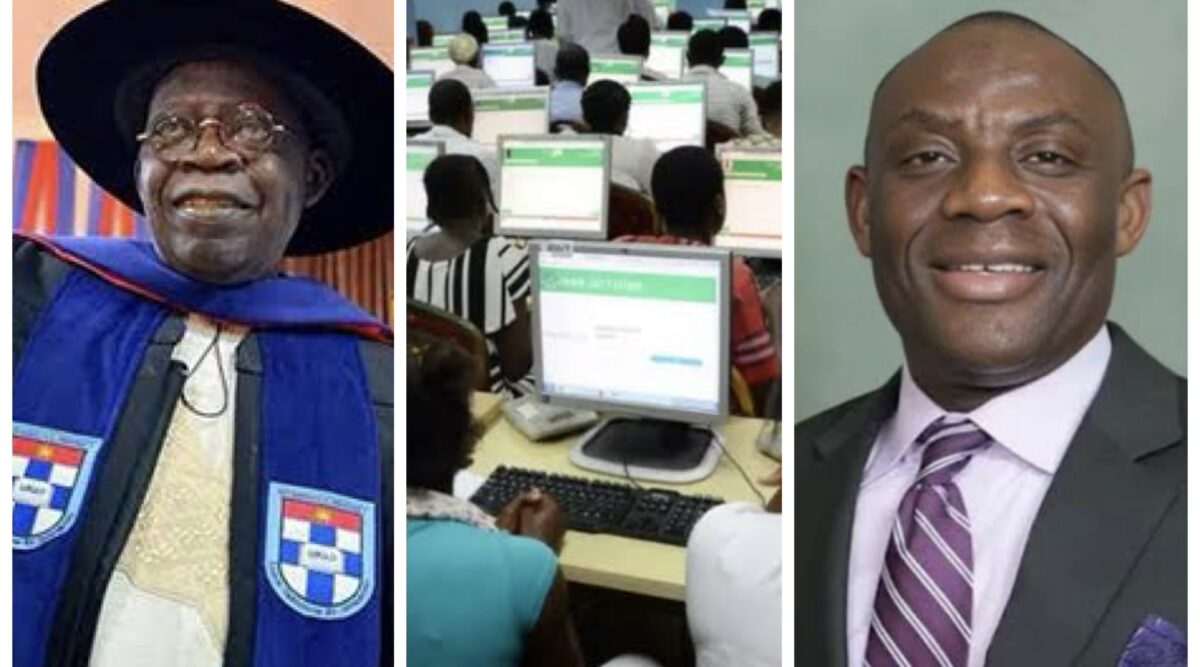FG Rolls Out 10 Sweeping Education Reforms Under Renewed Hope Agenda – See lists

FG Rolls Out 10 Sweeping Education Reforms Under Renewed Hope Agenda – See lists
The Federal Government has unveiled a series of reforms to transform Nigeria’s education sector in line with President Bola Tinubu’s Renewed Hope agenda.
Launched since his inauguration in May 2023, the reforms are designed to address infrastructure gaps, reduce dropout rates, and bridge skills mismatches. Coordinated by the Federal Ministry of Education and its agencies, including the Universal Basic Education Commission (UBEC), the measures focus on funding, curriculum updates, and digital monitoring systems. The initiatives are already being implemented across the 36 states and the Federal Capital Territory, with the aim of expanding enrolment and preparing learners for a digital economy.
Highlights of the 10 key measures include:
1. Students Loan Scheme (NELFUND): Approved in June 2024 and managed by the Nigerian Education Loan Fund, this interest-free loan scheme has already supported more than 20,000 undergraduates and postgraduates in public institutions, targeting students from low-income households.
2. Reinstatement of History: In February 2025, History was restored as a compulsory subject in primary and secondary schools, reversing its removal in 2017. The new curriculum covers Nigerian heritage and global events, with retraining programmes for teachers now ongoing.
3. National Education Sector Renewal Initiative (NESRI): Launched in January 2025 with the slogan “Education for Renewed Hope,” this framework sets a six-pillar roadmap — access, quality, equity, governance, innovation, and partnerships — tied to annual federal budget targets.
4. Teacher Professional Development: Introduced in March 2025, the plan offers continuous training through online platforms and zonal workshops for 1.2 million educators. Teachers who complete the courses will earn promotion credits.
5. Curriculum Review: Begun in April 2025, this reform aims to ease subject overload while prioritising entrepreneurship, digital literacy, and civic education. The rollout is scheduled for the 2026 academic session.
6. Digital Data Upgrade: Since July 2025, schools have been linked to a digital platform using biometric verification tied to National Identification Numbers (NIN). The system tracks attendance and performance while curbing ghost workers and improving efficiency.
7. AGILE and LUMINAH 2030 Expansion: The World Bank-backed Adolescent Girls’ Initiative for Learning and Empowerment (AGILE) has extended to 15 more states, providing scholarships and sanitary facilities. Meanwhile, the LUMINAH 2030 programme continues to strengthen vocational training in line with global goals.
8. School Rehabilitation Drive: UBEC has refurbished over 5,000 classrooms since May 2025, with a focus on rural areas. Upgrades include roofing, sanitation, and solar installations, addressing regions with high numbers of out-of-school children.
9. 12-Year Basic Education Model: Introduced in June 2025, compulsory education now stretches to 12 years instead of nine. Pilot programmes in Lagos and Kano also feature bridging options for dropouts, aligning Nigeria with UNESCO benchmarks.
10. Upgrade of Technical Colleges: Technical colleges are being modernised with free tuition and ₦30,000 stipends per student. Backed by a ₦50 billion budget, the initiative aims to train 100,000 youths annually, maintaining an 80:20 ratio of practical to theoretical learning.
These measures complement earlier programmes such as the expansion of school feeding to reach 10 million pupils daily, the phase-out of junior secondary exams, and the creation of digital registries for transparency.
Speaking in September 2025, Education Minister Tunji Alausa expressed optimism: “The reforms could raise Nigeria’s literacy rate from 62 to 80 per cent by 2030.”
However, challenges remain, particularly with funding. Currently, education accounts for only seven per cent of the 2025 federal budget, while insecurity continues to hinder schools in the North. International partners, including UNESCO and the African Development Bank, have pledged technical and financial assistance.
President Tinubu has also given assurances of more investment in the sector, saying he plans to raise education funding to 20 per cent of the national budget. Analysts, however, caution that fluctuations in global oil prices may constrain this ambition. Ministry data already show a modest improvement, with primary school enrolment rising by three per cent in the first half of 2025.
Meanwhile, civil society groups have urged the government to ensure the reforms reach marginalised communities, stressing the importance of wider consultation to achieve inclusive progress.






